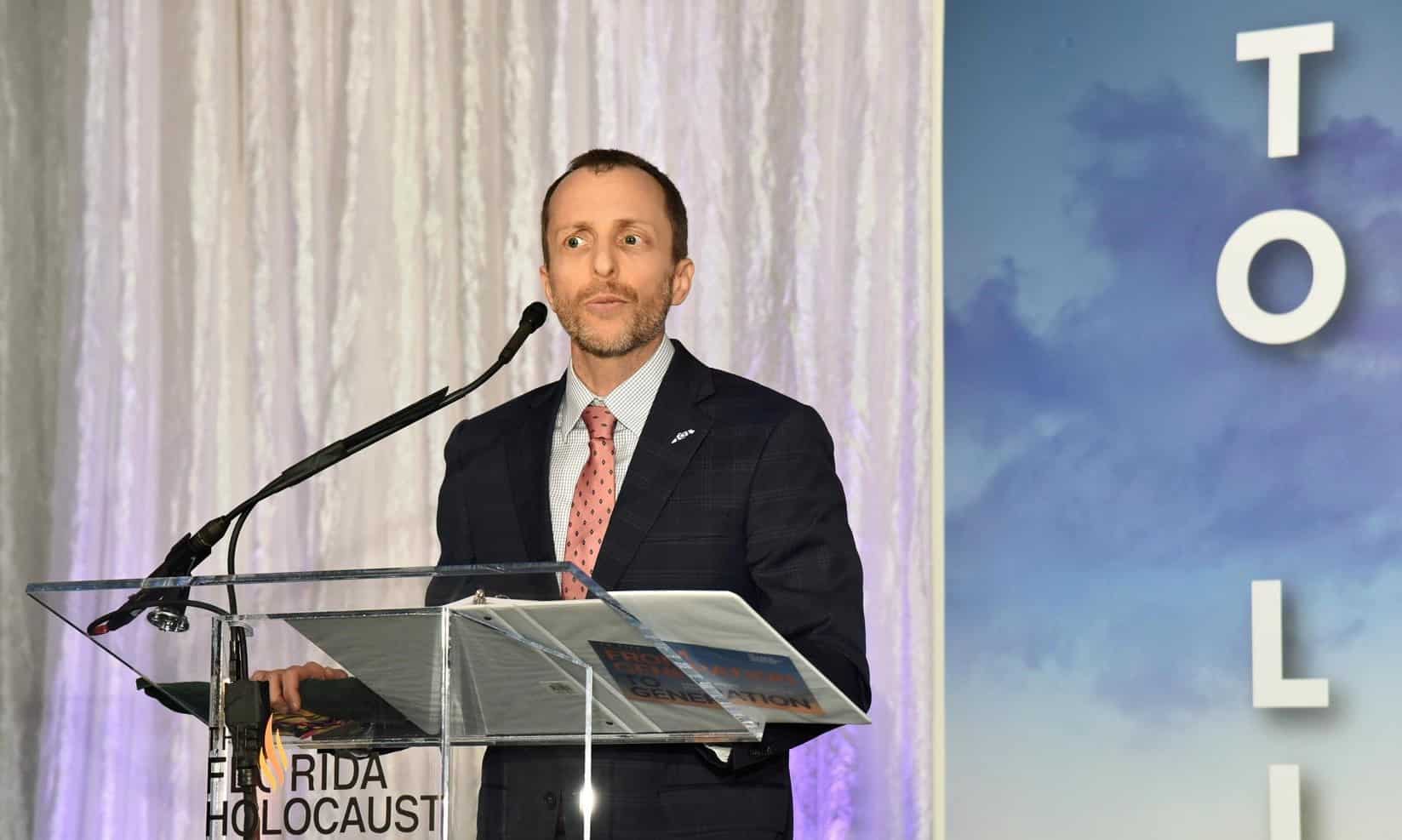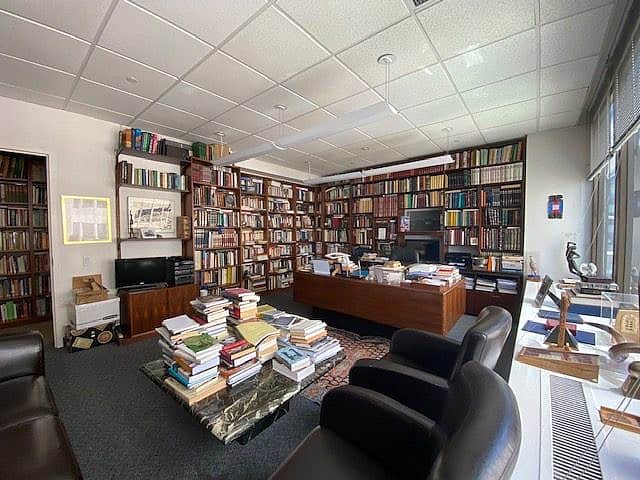The Florida Holocaust Museum and the Elie Wiesel Foundation for Humanity announce that the museum has been chosen as the permanent home of Elie Wiesel’s entire collection, including his Nobel Prize, the entire contents of his personal office and library, unfinished manuscripts, letters from world leaders and other luminaries, and a variety of artworks, photographs and recordings—some of which have never been seen.
“This treasure trove of artifacts is a game-changer for the museum, St. Petersburg and our entire region,” said Michael Igel, board chairman of the Florida Holocaust Museum. “Like the man himself, the Wiesel Collection will be a beacon of hope and a catalyst for action. Elie Wiesel was a master at explaining to all of us why the lessons of the Holocaust matter. Now, through innovative programming and exhibitions, the museum will use his voice to ensure that his legacy will always remain relevant.”
The Wiesel Collection will be a cornerstone of the permanent exhibition of the Florida Holocaust Museum, which is in the process of renovation and expansion. It will join a recently acquired boat used in the seaborne rescue that saved Denmark’s Jewish population, as well as a cattle car used to transport Jews to concentration camps.
Wiesel cut the ribbon at the Florida Holocaust Museum’s downtown location opening in 1998 and was a professor at St. Petersburg’s Eckerd College for nearly 30 years.

“I’m excited the Florida Holocaust Museum will be home to my father’s entire archive, including a re-creation of his office, honoring his unwavering dedication to truth, humanity and remembrance,” said Elisha Wiesel, son of Elie and Marion Wiesel, and chairman of the Elie Wiesel Foundation. “For almost 30 years, my father taught at Eckerd College, and he and my mother fell in love with St. Petersburg and the surrounding community, which is why I’m honored to be a part of solidifying the importance of this location to my father with the permanent exhibit of his collection.”
The collection will also be converted into an international traveling exhibition by the museum, making it available to Holocaust and genocide researchers around the world, and allowing both scholars and the public unprecedented access to Wiesel’s life and work.
The documents from Elie Wiesel’s library will be housed in Special Collections at Nelson Poynter Memorial Library on the University of South Florida’s St. Petersburg Campus and will anchor USF’s new Elie Wiesel Center for Humanitarian Ethics.

“We are honored to work together with the Florida Holocaust Museum to create a hub of humanitarian activity and education worthy of such an extraordinary man,” said Rhea Law, president of the University of South Florida. “Together, we will build a center of intellectual activity that reflects Wiesel’s own life and learning. We are grateful for the trust placed in our university and stand ready to turn this vision into a reality.”
The museum announced the collection’s new home at its annual “To Life” gala on Feb. 3 at the Vinoy Resort in St. Petersburg, Fla. The theme this year was “From Generation to Generation,” a tribute to descendants of Survivors who, like Elisha Wiesel, carry on their legacy and work.
The Florida Holocaust Museum honors the memory of millions of innocent men, women and children who suffered or died in the Holocaust. The museum is dedicated to teaching members of all races and cultures the inherent worth and dignity of human life in order to prevent future genocides. It is 501(c)(3) tax-exempt organization.


























